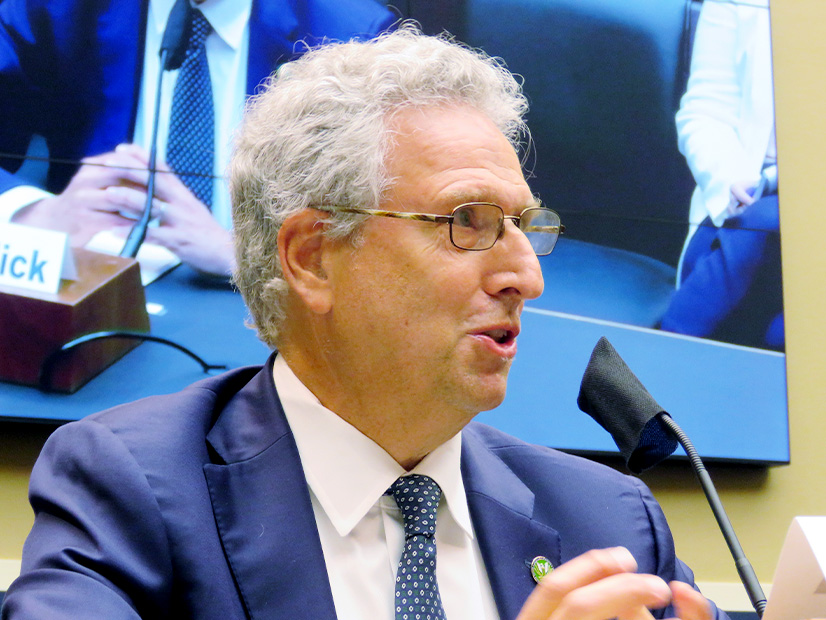FERC opened a Notice of Inquiry on Thursday over the recovery of trade association dues in utility rates, with commissioners questioning whether customers should pay for groups that seek policies that may be contrary to consumers’ interests.
The NOI asks what portions of utilities’ dues paid to industry, civic and political associations are suitable for rate recovery (RM22-5).
The inquiry is a response to a petition filed by the Center for Biological Diversity, a conservation nonprofit that argued that association dues should be presumed to be non-recoverable through rates. Utilities should shoulder the burden of proving that such expenses should be recoverable, the group said. The group also sued the Tennessee Valley Authority over the issue in September. (See TVA Sued Over Contributions to Trade Groups.)
Under current FERC accounting rules, regulated utilities are allowed to recoup association dues, subtracting disclosed spending on IRS-defined lobbying activities.
FERC Chairman Richard Glick said the NOI will help FERC decide whether to modify its accounting and recording requirements.
“It appears that trade associations might not provide the utility company members with a sufficient level of detail as to which portion of a trade association’s dues should be recoverable and which should not, making it difficult for the commission to assess whether utilities are being excessively compensated by ratepayers or not,” Glick said at FERC’s open meeting.
Commissioner Allison Clements said the inquiry “in no way impinges on regulated utilities’ ability to advocate for any issue of interest.
“Regulated entities have every right to engage in outreach to influence public opinion on political issues; however, they do not have the right to pass through the cost of their outreach to the customer,” she said.
“At the minimum, it is a good housekeeping exercise to ensure that customers are not inappropriately left footing the bill for their electricity provider’s political aims, simply because they were taken on a by trade association instead of a regulated entity itself.”
Commissioner Mark Christie agreed that the NOI “is not a constitutional threat.”
“I don’t see it as threatening any corporations or trade associations’ speech rights,” he said. “The question here is not about the First Amendment; it’s about who pays for the expenses associated with speech.”
Christie pointed out that while state-regulated monopolies “may invest voluntarily,” their captive customers cannot buy voluntarily.
Christie said that FERC uses formula rates, a “very different system than in states where a utility comes in and has … the burden of proving that any expenditure is prudent.”
He added that he hadn’t prejudged any answer to whether FERC’s formula rate format is transparent enough. “It may be that the rules are fine. And maybe no changes are needed. But I don’t see a problem at all with putting this out for comment.”
Christie added that FERC should probably also consider whether its precedents on charitable and civic contributions should be codified. “I do not think that charitable and civic contributions by a state-granted monopoly should be recoverable from customers, period. That should not be allowed at all,” he said.
FERC Commissioner James Danly said he was dissenting on the NOI and would issue a later statement. He did not explain his opposition during the open meeting.



